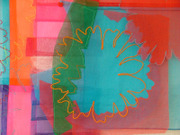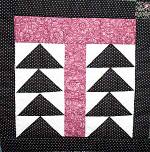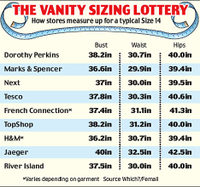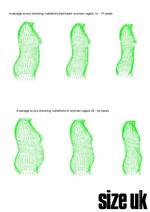There's been some press about a recent Dispatches programme (available through 4oD until 08/12/10).
Dispatches investigates the working conditions of clothing manufacturing units in the UK. With British consumers keen to buy the latest designer looks at cheap prices, this film exposes the real human cost behind high street fashion.
Over three months, secret filming is carried out inside a number of textiles factories and suppliers and the footage shows the poor treatment and illegally low pay of workers as they make clothes destined for major fashion retailers.
The working conditions are dangerous, poorly ventilated, dirty and cramped, and workers are paid as low as under half the minimum wage.
The film also reveals the high street brands whose clothes are being made by these workers.
Dispatches exposes shocking practices, more commonly associated with sweatshops in the developing world, but existing right here in modern Britain.
Of course, it's important to take these things with a pinch of salt, as exposés aren't known for their balanced views, but it does throw up some important points. The most shocking of which is that pay-slips can say £5.73/hr (min. legal wage) when the employee is only receiving £2.5/hr.
Certainly I know that that some jobs (fruit-pickers, etc.) can pay less that the minimum wage once training is over as the employees are paid per item (with the understanding that if the employee is working efficiently, then they will make the min. wage; I heard about this on Farming Today over the summer).
But I'm not sure how an employer can issue a formal pay-slip different to the amount that they pay - which is what seems to happen in these clothes units. And the other situation, of a cash-in-hand payment like the reporter got, is hugely liable to exploitation.
I suppose it just highlights that, no matter what protective legislations are in place, people will always be exploited when thay are desperate for money. It's certainly not a cut-and-dried issue (will the workers of the sweatshop be forced to leave now it's been exposed and find work in even worse conditions?) and I don't like the line forced by Tazeen that cheap clothes creates inethical practice. Certainly we'd be naive to assume that the higher-end clothes shops don't have this: they are profit-based companies, after all.
High-street fashion companies do have a responsibility to investigate thoroughly those suppliers that they use and I hope they chose them with more care in future.
If you'd like more information about how you can help, I recommend reading Labour behind the Label's website. A fascinating read from an active and useful group...
And, while on this subject, I'd highly recommend a book I read recently: Through the Eye of a Needle. It's a beautifully-written book, both poignant and funny, and hugely thought-provoking. I'll write more up about this later (my copy's with a friend - it's a book to be lent to everyone you know).
--------------------
Postscript: More in the press today:
http://www.guardian.co.uk/business/2010/nov/21/monsoon-child-labour-india
http://www.guardian.co.uk/business/2010/nov/21/monsoon-supply-chain-retail-comment











Sadly, my lovely little Husqvarna Viking will have to do for me for now :~)